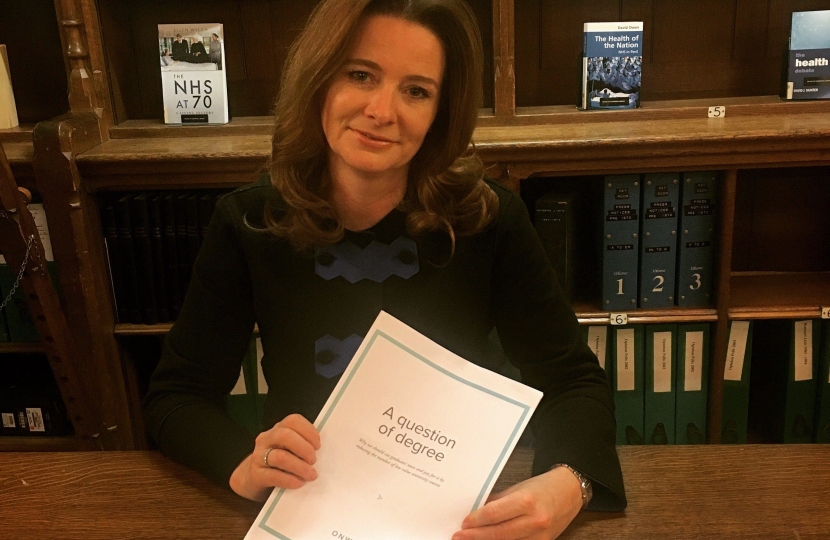
GRADUATES could be given tax cuts to help win back millions of young voters who have abandoned the Conservatives.
Senior government figures are understood to be studying proposals for a “tax cashback” of 50p for every pound repaid by the two million graduates toward their student fees.
The plan is set out in a report by Onward, an influential think tank run by Theresa May’s former policy adviser.
It comes after Jeremy Corbyn’s promise to scrap university tuition fees was identified as a major factor behind the Conservatives’ dismal performance in the 2017 general election. The paper has been co-written by Neil O’Brien, parliamentary private secretary to the business department, with a foreword by Gillian Keegan, another Conservative MP who is an aide to the Treasury.
It is understood to be under consideration by Philip Augar, a former director of the Department for Education, who is leading a review of post-18 education commissioned by the Prime Minister. The report says the cut should be funded by diverting students from courses whose graduates earn the lowest salaries toward apprenticeships, technical education and other courses.
Many taking the “lowest-value” courses fail to reach the £25,000 income threshold at which they are required to make 9 per cent repayments.
Will Tanner, Mrs May’s former deputy head of policy and now director of Onward, said: “If the Conservatives are serious about reversing their collapse among younger voters over the last few years, fixing Britain’s broken student loan system must be a high priority.”
Mr O’Brien said: “A graduate tax cut would help people regardless of whether they are studying now or have already left. In contrast Jeremy Corbyn’s half-baked policy would do nothing at all for anyone who has left university.”
Onward says higher-rate-paying graduates pay 51 per cent marginal tax rates, comprising 40 per cent income tax, 2 per cent national insurance and 9 per cent in student loan repayments.
According to the report, a recently graduated couple earning £35,000 and £40,000 would be £1,125 a year better off as a result.
In November it emerged that an early draft of Mr Augar’s report, a final version of which is due to be passed to ministers this month, suggested cutting tuition fees to between £6,500 and £7,500 a year, with the shortfall made up by the Treasury.
Onward said such a move would “considerably increase the stock of debt the Government would have to write off after 30 years, which will already add £28billion to the deficit in 2049-50.”
By Edward Malnick SUNDAY POLITICAL EDITOR


